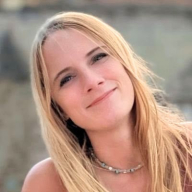
Kat Woods 🔶 ⏸️
Bio
Co-founder of Nonlinear, Charity Entrepreneurship, Charity Science Health, and Charity Science.
Posts 50
Comments293
Topic contributions1
Ooh, thanks for tracking this down!
It looks like creatine supplementation does mildly affect cognitive performance but it doesn't help vegetarians more than omnivores.
But isn't creatine really hard or impossible to get with a vegan diet? So presumably then it would be affecting their regular cognitive performances?
This study shows that supplementing causes a similar increase of cognitive abilities compared to omnivores, but it could be that they're starting from a worse spot than they would have been had they been omnivores?
It'll be hard to figure that out because vegetarians tend to have baseline higher IQs, from what I recall. But that is quite likely a selection effect.
vegans live longer in observational studies.
Vegetarians (not vegans), but then if you find a comparison group that also doesn't drink/smoke but isn't vegetarian, the non-vegetarians live longer.
Also this larger study shows that meat consumption predicts longer lifespan.
I'm sure I'm healthier than the majority of the population too. So if you're willing to put in this amount of work, I don't think the argument applies.
If you can control your diet enough to be vegan, you can probably control it enough to eat healthier with a non-vegan diet as well.
The important thing isn't that you're healthier compared to a SAD diet. Pretty much anything is better than a SAD diet. The important thing is whether you're healthier than your realistic alternative.
If you eat in the way I describe you still get the signalling benefits and you don't have to do expected value calculations with every decision.
In fact, you might have better signalling effects because it shows you're not just blindly virtue signalling but actually trying to solve the problem.
Also, if you look and are healthier, people will find that more persuasive.
Ozempic seems potentially good. Also, many other diets also cause weight loss (e.g. Mediterranean, paleo, etc). As I understand it, most diets lead to weight loss as long as you can keep them up. So just pick a diet that you can maintain long term.
I think if you have enough control over your diet to be a vegan, you have enough control to do one of the other diets that has the weight effects without health side effects.
Love this. For others curious about trying to understand conservative values and thinking more, I recommend Jonathan Haidt's The Righteous Mind: Why Good People Are Divided by Politics and Religion.
I also recommend Love Your Enemies: How Decent People Can Save America from the Culture of Contempt

Yeah, I've already spoken privately to a bunch of people about this and haven't heard any arguments that have changed my mind.
I'd love to hear counterarguments though! Perhaps there are ones I haven't heard that would change my mind.